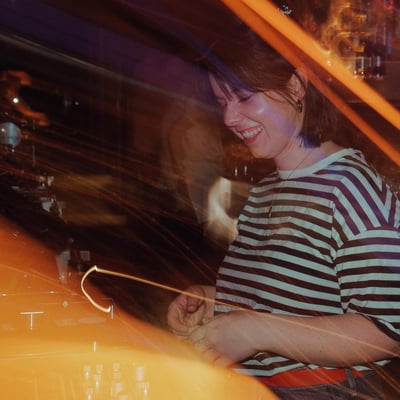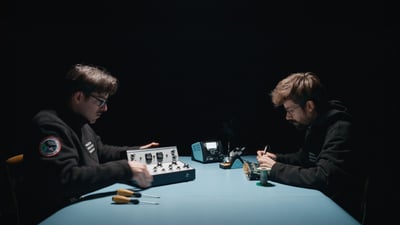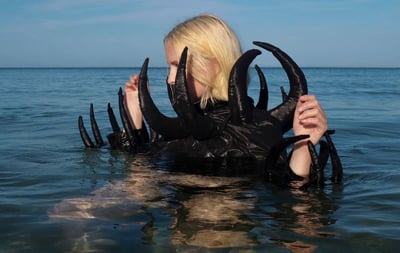DJ and collector Emel Ilter talks about her passion and 10 years of the Not Too Young Swiss Soul Weekender
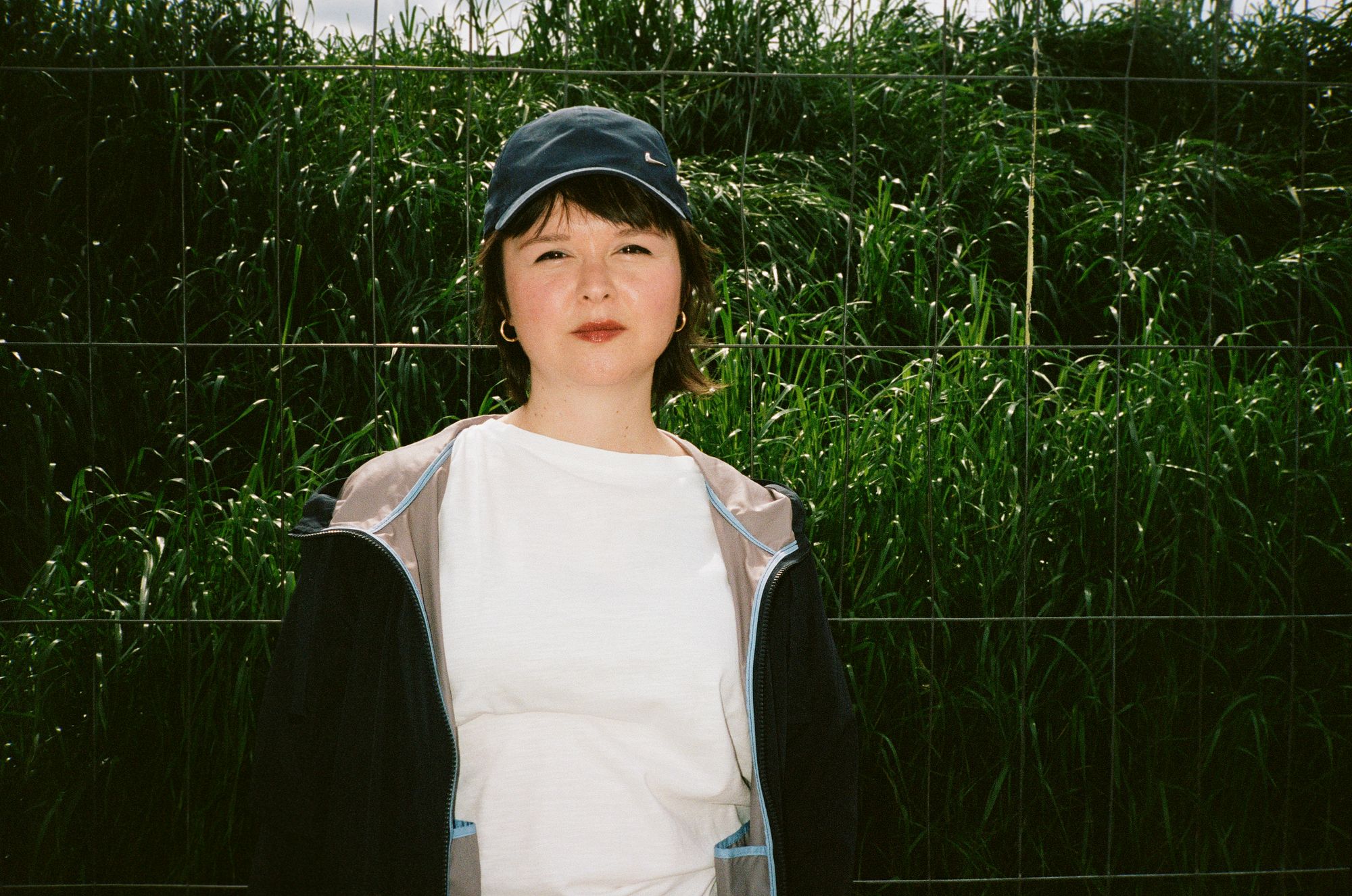
Emel Ilter is a DJ, record collector and co-organises the Not Too Young Swiss Soul Weekender in Lucerne. She also has a residency at NTS Radio and her own radio show on Radio X. Dominik André caught up with her to talk about her career and the 10th anniversary of their Soul Weekender in Switzerland, which is just around the corner.
"You won't find records stacked up to the ceiling at my place." – Emel Ilter
The Not Too Young Swiss Soul Weekender celebrates its 10th anniversary this year. What was it that led you to start your own Weekender back then?
When I came to Lucerne in 2008, I met Henning Börm. Soon after, we founded the Spin Club Lucerne. Through these parties, we got to know more and more people and travelled to other Soul Weekenders together. After a few years, we decided to do one ourselves. We wanted to address a younger – our – generation of DJs and collectors.
Why are these Weekender events so important for soul music collectors?
At these international events, you always meet old friends from all over the world, but you also get to know new ones. Personal encounters keep the scene alive and keep things moving, especially since most of these weekender events appeal to an international audience. It's also about new discoveries, about finding out about other collector's records and who has access to what so that you can stay in contact with each other.
Have you been able to establish your Weekender as a station in the annual calendar?
I think so. We often get the feedback that people feel very much at home with us.
What are you planning for the next 10 years?
A Weekender like this is always a very time-consuming undertaking. But we have a lot of supporters in our community and that motivates us to keep going. Beyond that, we don't have any big ambitions. It has always been important to us to maintain a familiar atmosphere.
What does soul music actually mean to you?
I can't answer that question so easily, there's a lot that goes into it. On the one hand, it influenced and continues to influence my biography, then it taught me to listen consciously and to get to know Black Music history. Then, on another level, soul music touches something in me that I want to explore further and has also socialised me in that sense.
In what way?
That I don't just look at the finished product, but listen more closely to find other connecting elements.
You're talking about sampling?
I came to soul music via RnB and hip-hop because I recognised samples in Puff Daddy's songs. These genres quote a lot, which I find incredibly interesting. So elements of Diana Ross or The Police songs were used to create new music from them. They play with the essence of the respective sample, which then creates something new. The music always builds up on each other.
What influence did that have on your biography?
Thanks to the people I met, I always found points of contact through new music. I originally come from Düsseldorf, where I was involved in various music scenes. The Unique Records label around Henry Storch was very important, but also Combination Records by Philipp Maiburg, which stands for drum and bass.
How did you finally become a collector?
Later I ended up in central Switzerland, in Lucerne. I went there for my Master's degree. I met Henning Börm, who introduced me to the genre of soul music and also got me into collecting. I had already bought records before, but with him, it was all about finding the originals. This led to a certain challenge and I got deeper and deeper into the rabbit hole.
"The radio show at NTS enabled me to focus more on the aspect of listening again." – Emel Ilter
Do you separate collecting from music?
I wouldn't call it a separation, it's more like a mutual condition and influence. The "collecting" is connected to the music because I decide for myself to find this single as an original because I have developed a relationship with it. When I discover something and think to myself, "Wow... this is really hitting me right now." Then there's this urge to find it and then to own it as a single. I collect very consciously. My collection is not that big – compared to other people's. You won't find records stacked up to the ceiling at my place. But I am extremely proud of my small but personal collection.
Small but fine. Nevertheless, a certain monetary value is probably associated with it.
Yes, I also had it insured.
Do you mind asking how much?
Five figures already. But that's the value and not what I paid. Certain records have increased in value immensely in the time I've owned them. Certain records I could no longer afford today.
Have you ever not taken records with you to DJ because of their value?
Yes, I am very careful about that. When I play in front of an audience of connoisseurs, I take completely different records with me than when I'm "simply" booked to create an atmosphere.
Would you say that limits you?
It is a limitation in a way. But I decide from situation to situation. If I know the place, then I have more confidence to take a rare record with me.
Has anything ever happened?
I once played at an open-air event and afterwards, all the records were full of floral dust.
Emel Ilter can be heard monthly on NTS with her show "Heavy Love Affair".
You are a collector but also a DJ. How does that connect for you?
I have a desire to communicate, just as music is communicated to me through DJ and radio sets. I like to put pieces in context and DJing is a way to show my findings to the public.
You have your monthly radio show "Soul Sketches" on Radio X in Basel where you invite guests to talk about their own collecting experiences and listen to soul music. You can also be heard on London's NTS Radio with your sets called "Heavy Love Affair". How did that come about?
Ever since Instagram actually existed, I've tried to maintain an exchange with the vinyl collectors community. This includes Joe Christiano and Alston Paresa (Couple Two T'ree) from New York, who I find extremely exciting as collectors. Joe also has a show with René from Los Angeles on NTS called Los Hitters. At some point, they asked me if I wanted to do half an hour on their show. After the broadcast, NTS from London approached me and asked if I would like to do a monthly show on their station.
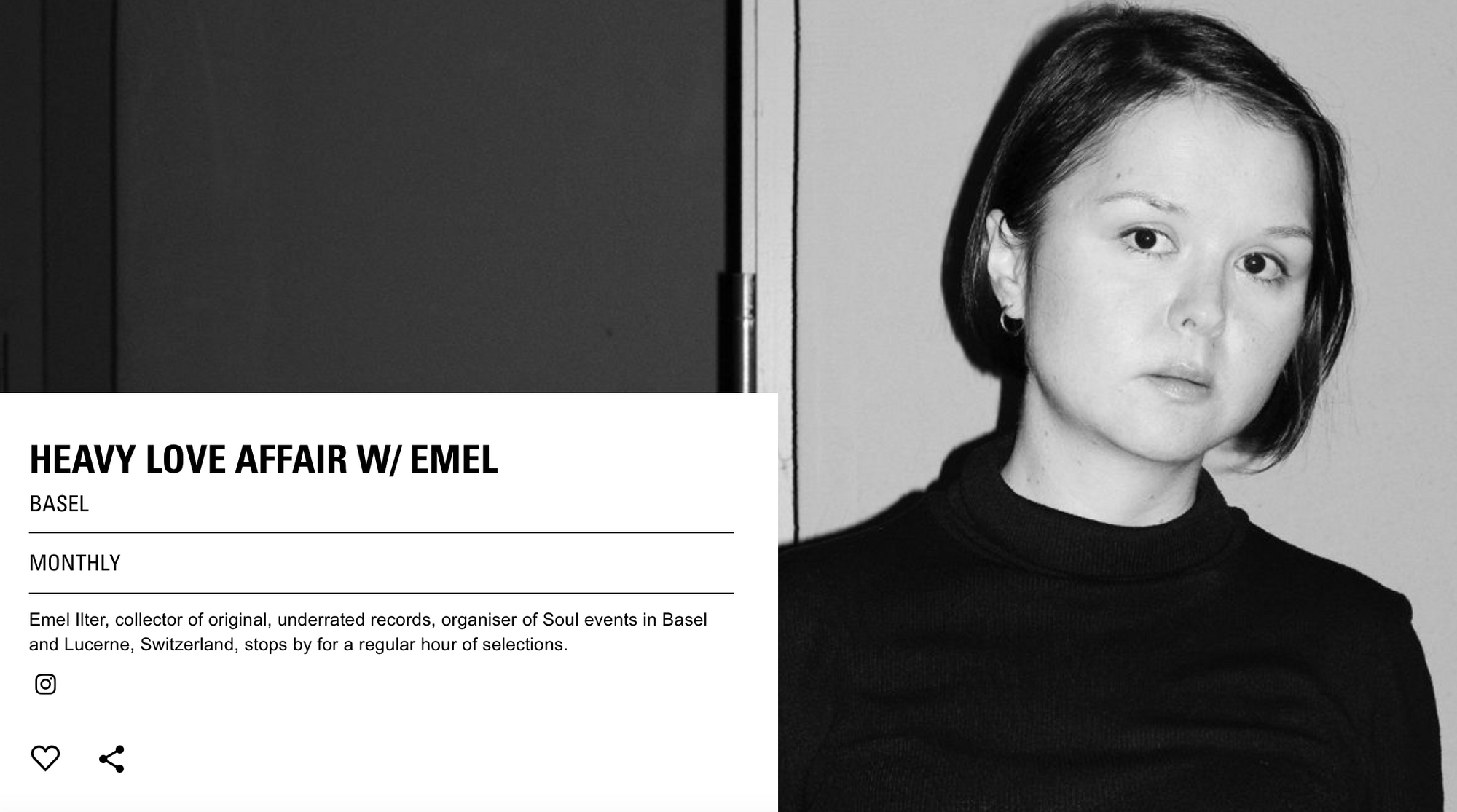
What is different for you about a DJ set on the radio?
Playing in front of people brings additional layers. Depending on when you play, you are tasked with creating a mood – ideally, you get people dancing and drinking. That also comes with a certain amount of pressure and I've noticed that it's good for me to move away from that. With the retreat from the club, the radio show at NTS enabled me to focus more on the aspect of listening again, which I enjoy very much.
You grew up with Turkish music. When did this music become part of your collection?
When you grow up in a Turkish household, you hear a lot of Turkish music at weddings. As a child, I always heard it on the radio and on TV. Also, the cassette shops in Turkey always had the hits of the summer, which we brought back when we were on holiday there. From that, there is a kind of knowledge bubble. It's a kind of repertoire that repeats itself over and over again. In Turkey, pieces are rearranged by anonymous composers. There are endless versions where you can't really trace who wrote them. Because the pieces are repeated, again and again, this music lives because it is never reproduced in the same way. I only started collecting Turkish records later on when I had already started collecting soul music.
"I have never seen myself as a "big fish"". – Emel Ilter
Provocatively said: Soul music has a dusty image. Do you feel that you are dusting it off a bit?
I think dusting is an interesting image because it also means that there is something to discover. Collecting is a kind of urban archaeology that keeps uncovering layers. An example: you know Prince, but a band from the same environment means nothing to you. Or Teddy Pendergrass, you might know his name, but you've never heard of a particular record he was involved in. It's always exciting to present what people think they know, but then go a layer deeper where there's still something to discover.
It seems you are having quite some success doing so.
I have never seen myself as a "big fish". On the contrary, I am often very intimidated by what others create or by their ability to be so intensely involved in collecting. But I have always had the desire to use my resources to share what I find so beautiful about it all. The things I play on the radio have long been known to collectors, so my goal is not to impress them. I see my task as showing the music that the collector scene already knows to a new audience.
You say you are sometimes intimidated. Has that held you back in any way?
No, it has never really held me back. Yes, I'm intimidated by the knowledge and energy that some people can put into finding unknown records, but I feel blessed to have people around me who are happy to share their knowledge so that I can learn and follow my tastes.
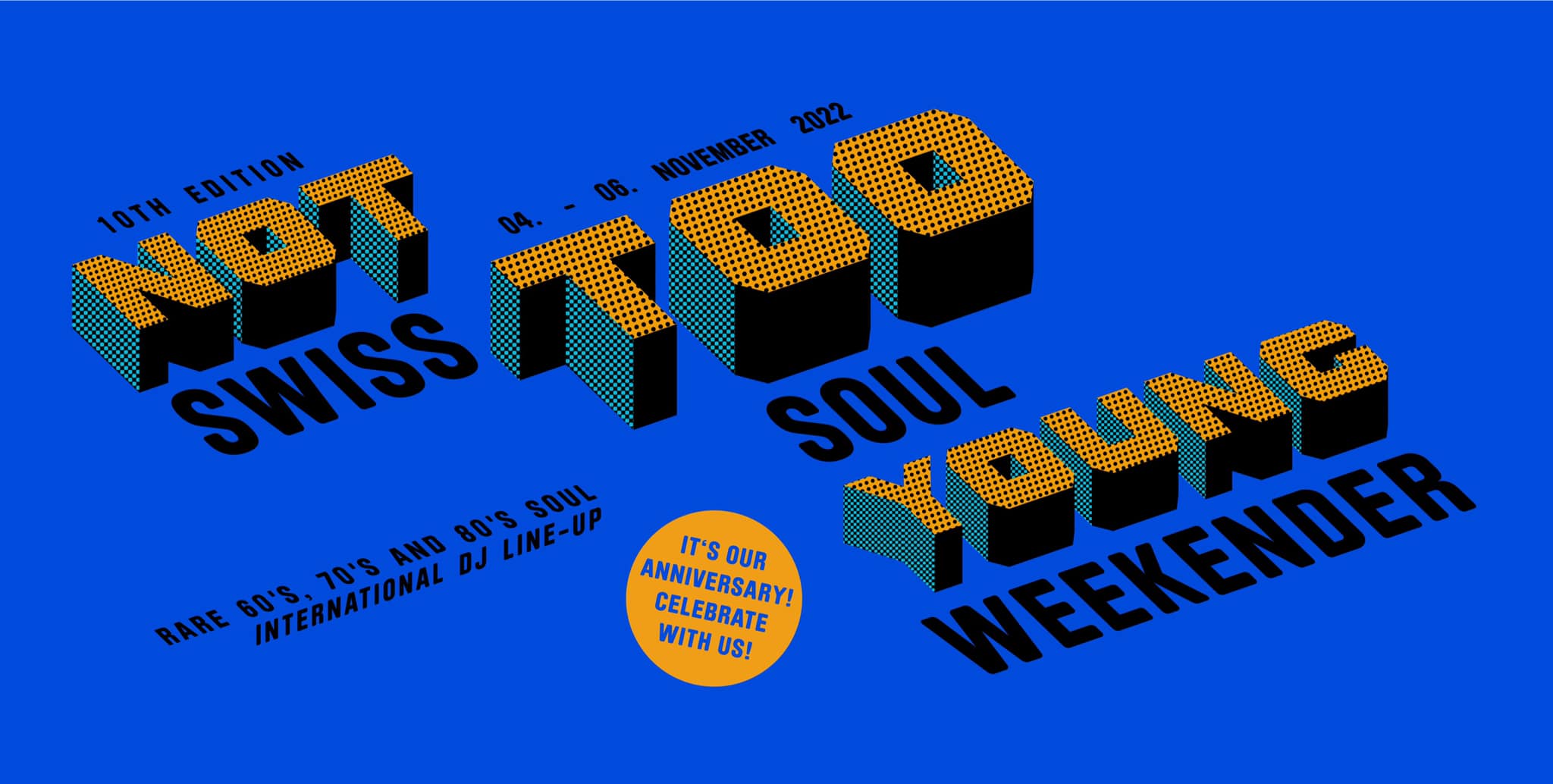
The interview was conducted by Dominik André and has been edited for length and clarity.
